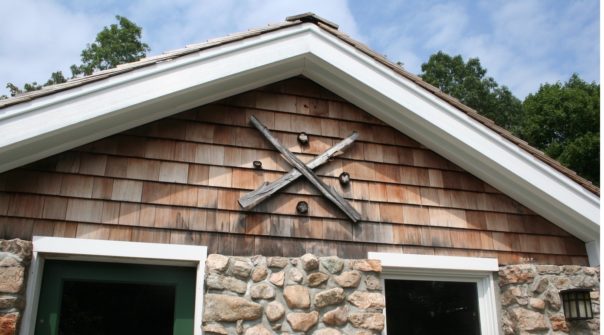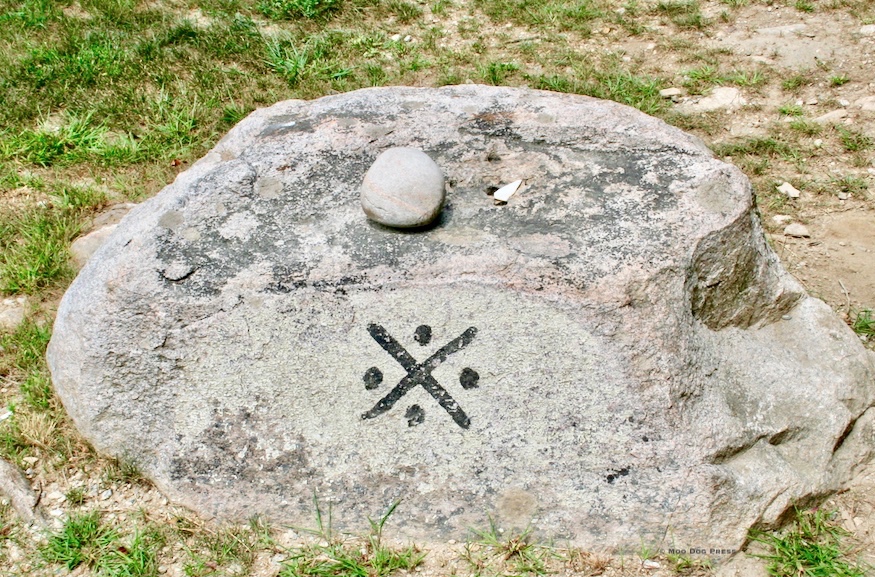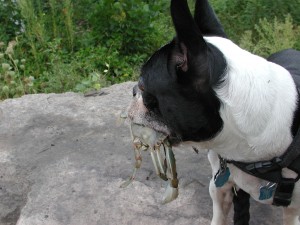COVID-Era Pages: ‘Observe. Concentrate. Remember.’
Editor's note: Life is different now. Reading history is learning about how people faced challenges and held on to core values. Science now reveals the interconnected world and there is much more to know. A portion of this story originally appeared in 2019.
Looking back, looking forward. Stand still.
Hammonassett. Mattabesset. Mohegan. Montauk. Moosup. Natick. Narragansett. Niantic. Paugussett. Penobscot. Pequot. Poquonock. Quinnipiac. Quonnipaug. Shenipsit. Shepaug. Shetucket. Skungamug. Uncasville. Tunxis. Wampanoag. (So many more.)
“These are the good old days. Take them, shape them, and give them to your children for a better tomorrow.”
— Chief Harold Tantaquidgeon, the words above his portrait in two languages; English and Mohegan
Can you hear the voices? Past, present, future intertwine; you are part of all that alive right now. One planet, all species.
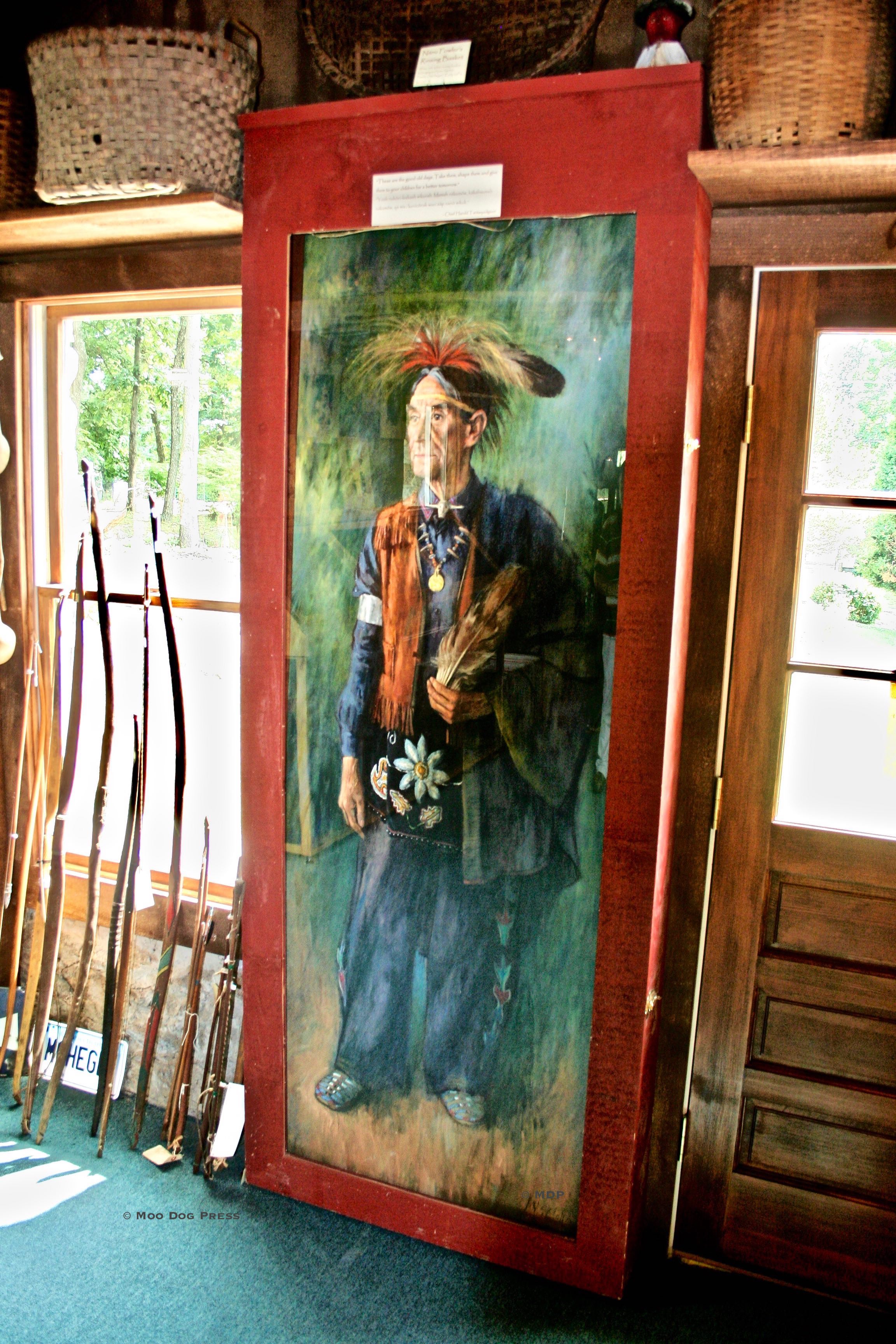
Portrait of Chief Harold Tantaquidgeon at the Tantaquidgeon Museum in Connecticut. Above his head is a label with his words ‘These are the good old days. Take them, shape them, and give them to your children for a better tomorrow.' in English and Mohegan.
Recently, while reviewing archives of images, some collections simply stand out.
Here are some, at a most timely re-discovering. Four centuries have slipped by since a ship landed on the continent now known as North America, home to tribal nations.
Growing up decades ago, then years of travel and living in many places throughout the U.S., finding artifacts that surfaced after a field was plowed or heavy rains washed out a stone point — but unaware of tribes in Connecticut, and especially one museum way ahead of its time. Learning about the state during research and writing a book about nature walks in Connecticut was a revelation. So many places discovered by visiting local libraries, town halls, talking to people, walking the routes. Stopping everywhere that seemed interesting, asking questions. Later, revisiting places that stayed in the memory, this time with a digital camera, a most valuable companion.
“At the height of the Great Depression, a Mohegan named John Tantaquidgeon decided to build a dream. Although blind in one eye and on crutches, he and his children, Gladys and Harold, founded the Tantaquidgeon Indian Museum in 1931. Since that time, visitors have traveled here from around the world to experience the spirit of the Mohegans and the beauty of Native America. Featuring eastern woodland Indian artifacts, the museum’s mission is to showcase objects from a Native American perspective.”
It is the oldest Native American owned and operated Indian museum in the United States.
“Observe, Concentrate and Remember.”
– Harold Tantaquidgeon
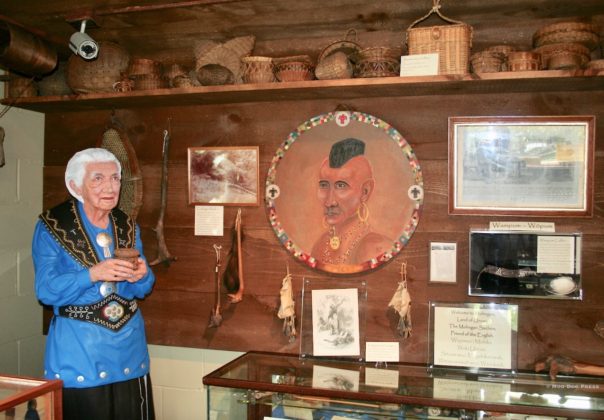
Inside, a representation of the late Gladys Tantaquidgeon, who accomplished so much in her lifetime. Archive MDP image from July 2008.
The Tantaquidgeon Museum is located at 1819 Norwich New London Turnpike in Uncasville, Connecticut. It is operated by the Mohegan Tribe and tours are conducted by Mohegan tribal members. Although the pandemic has closed it for now, readers may follow the official Facebook page for events and shared knowledge; there is no longer a Twitter feed as of 10/29/2019.
From the Connecticut Women's Hall of Fame:
“Gladys Tantaquidgeon grew up steeped in the traditions of her Mohegan tribe. In a remarkable life that spanned three centuries, she was credited with the preservation of the Mohegan tribal language and customs in Connecticut. Nationally, she was known as an expert in the restoration of cultural practices and was sought after by western tribes to aid in preservation efforts.
“Tantaquidgeon was born in 1899, a descendant of the first Sachem Uncas and niece of Emma Fielding Baker, who became her mentor and educated her in tribal spirituality and herbal medicine. In 1919, she began studying anthropology with Dr. Frank Speck at the University of Pennsylvania, followed by field work among northwestern tribes. In 1934, she was hired by the United States government to work on the Yankton Sioux reservation in South Dakota. Later she worked to promote Indian art for the Federal Indian Arts and Crafts Board in the Dakotas, Montana and Wyoming. Her duties involved the organization of Indian cooperatives and research and preservation of ancient Indian artistic techniques.
“After concluding her government service in 1947, she returned to Uncasville, Conn., where she joined her father, John, and brother, Harold, as the full-time curator of the Tantaquidgeon Indian Museum, which she had co-founded in 1931. The museum, which housed native artifacts, was dedicated to education, based on Tantaquidgeon’s belief that ‘you can’t hate someone you know a lot about.' It is the oldest Native American owned and operated Indian museum in the U.S. Tantaquidgeon continued to work at the museum until 1998, and further served the Mohegans on their Tribal Council. In addition, she worked as the librarian at the Niantic Women’s Prison during the 1940s, where she tapped into her previous work helping struggling women on reservations.
“Drawing knowledge from multiple sources, Tantaquidgeon was also the author of several books on Indian medicine practices and folklore, including Folk Medicine of the Delaware and Related Algonkian Indians. Among her many honors are the University of Connecticut’s ‘Tiffany Jewel' and the National Organization of Women’s Harriet Tubman Award. In addition, Tantaquidgeon received honorary doctorates from the University of Connecticut and Yale University.
“When Gladys Tantaquidgeon died at the age of 106, she was celebrated as the remarkable woman who had kept her heritage alive with her spirituality and fierce determination. At the time of her death, Connecticut Governor M. Jodi Rell remarked that ‘Tantaquidgeon shared 106 years with Connecticut and its people, and all of us are the richer for it.'”
The Mohegan Tribe is a sovereign, federally-recognized Indian tribe situated with a reservation in southeastern Connecticut.
“We welcome you to explore our website to learn about our history, traditions, government, business ventures and more.”
Here is but a sampling from the official Mohegan site:
The Mohegan Language Restoration Project: “Fidelia Fielding, the last fluent speaker of the Mohegan language, died in 1908. At that time, many Mohegans had stopped teaching the language to their children, for fear of retribution by teachers in local schools. An extensive project has long been underway to restore the Mohegan language and teach it to Tribal members, especially the young generation, so that they may carry it forward.
“The Mohegan Language Project pieces together fragments found in written documents owned by various Tribal members including Fidelia Fielding and anthropologist Frank Speck from over a century ago. In addition, the Mohegan Tribe works with neighboring tribes who have similar dialects.”
New dates have been revealed for Wampum: Stories from the Shells of Native America, the first touring exhibition by @theboxplymouth as part of the #Mayflower400 commemorations 🗓
Find out more 👇https://t.co/xg2jafYo7H pic.twitter.com/PiatPuVBTr
— Mayflower 400 UK (@mayflower400uk) July 31, 2020
An excerpt: “The newly crafted wampum belt has been created by more than 100 artisans from the Wampanoag nation and consists of 5,000 handcrafted beads. It will tour with historic wampum belts from the British Museum collection. On completion of the tour, the new wampum belt will be returned to the Wampanoag Nation.
It is hoped that through this touring exhibition, a lost Native American treasure may be uncovered – the wampum belt of the Wampanoag chief Metacom.
It has not been seen since it was sent to England in 1677 following the King Philip’s War, and has been the subject of an intensive international search that began in late 1970 and continues to this day.
“Funded by Arts Council England as part of its support for the Mayflower 400 program, Wampum: Stories from the Shells of Native America will explore the history, art and culture of the Native Americans who met the passengers of the Mayflower on their arrival in modern day Massachusetts in 1620 and ensured their survival. Wampanoag artists will share their story and set out their creative aspirations for the future through images, ideas and wampum.”
Some details about “Our” Story: 400 Years of Wampanoag History, a film that reveals little-known historic and cultural realities of the “people of the first light.”
“The Wampanoag have lived in southeastern Massachusetts for more than 12,000 years. They are the tribe first encountered by Mayflower Pilgrims when they landed in Provincetown harbor and explored the eastern coast of Cape Cod and when they continued on to Patuxet (Plymouth) to establish Plymouth Colony.
“…a story that cannot be told without the perspective of the indigenous people who were here as that ship arrived and who still remain.”
“Our” Story: 400 Years of Wampanoag History is conceptualized, researched, and produced by SmokeSygnals Marketing and Communications and The Indian Spiritual and Cultural Training Council Inc. The exhibit is part of Plymouth 400, Inc.’s signature programs and events and will continue to travel through 2020. Additional chapters of Wampanoag history will be added each year in November. Inquiries regarding upcoming locations and opportunities for hosting this exhibit should be directed to Plymouth 400, Inc.
Thinking of teamwork, reflecting on stories past and present while on a journey of a different sort, taking all one step at a time. For resources during a pandemic, here is a link to that page. Wear a mask, wash your hands, get your flu shot. Read. Vote. Ask questions (the only dumb one is the one you don't ask.) Listen to science and medicine, best practices as we all go forward through autumn and into winter.

